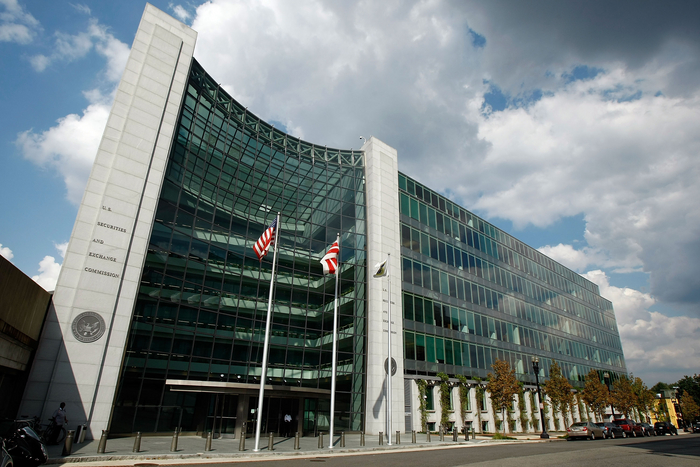The US Securities and Exchange Commission (SEC) published a new warning related to the cryptocurrencies in which stressed out that all the cryptocurrency exchanges should be registered and approved by the Commission.
The statement was also shared on the official Twitter account of the SEC. It explains that the federal regulatory frame that regulates the cryptocurrency exchanges operating in the country is designed to protect the investors and avoid the fraudulent and manipulative trading practices, so that is why it is obligatory for the cryptocurrency exchanges to be registered correctly. The SEC says that, despite the fact that many cryptocurrency exchange platforms say they are recognized by the Commission, the only way to verify this is to investigate using the tools provided by the SEC.
The only occasion in which these type of companies should not be registered with the SEC is when the Commission conducts a study of the characteristics of the company and decides it does not need to be registered. In this case the company will be given a document that guarantees its exemption from the obligation to register with the SEC. To determine whether a particular cryptocurrency exchange is correctly certified, the SEC made available a list of the registered cryptocurrency exchanges and the approved alternative systems for exchange. Among the exchanges approved by the SEC, we can find the Chicago Board Options Exchange (CBOE), NASDAQ and the New York Stock Exchange.
The alternative exchange systems are defined by the SEC as trading systems that comply with the definition of cryptocurrency exchanges according to the federal stock laws. This means these companies should not be registered, but they still need to undergo a process of investigation to obtain the certificate of exemption. JPMorgan Chase, Deutsche Bank, Credit Suisse and NASDAQ are some of the companies that fall into this category.
In the same way, the statement published by the SEC describes other entities related with the trading of cryptocurrencies, but that are not qualified as cryptocurrency exchanges and can trigger other requirements according to the federal laws. They include stock brokers, transfer agents or compensation record agencies and digital wallets used for storing or sending assets. Moreover, a platform that offers cryptocurrencies that are securities can participate in the unregistered offers and the sale of securities if these are not registered or are exempt from the register with the corresponding intermediary involved.
To complement the warning, the SEC also shared a number of questions the users should make before deciding to invest their assets in the cryptocurrencies offered by an organization. Among the most important ones are: “How does the platform protect the trading of the users and their personal information? What are the protections offered by the platform when it comes to cybersecurity threats such as piracy and intrusions? How does the platform safeguard the assets of its users? The Commission demonstrated great interest in protecting the investors in cryptocurrencies, especially the less experienced ones, from the possible frauds or the lack of preparation to participate on the cryptocurrency market.
Cryptocurrency exchange Bittrex published a statement following the warning issued by the SEC: “Bittrex uses a robust digital token review process to ensure the tokens listed on the exchange are compliant with U.S. law and are not considered securities. Bittrex is committed to helping advance the United States’ global leadership in this emerging industry, and we look forward to continuing our proactive dialogue with the SEC and other regulators on how to build a secure, fully-regulated environment for blockchain that encourages innovation and economic growth.”
Last month the SEC published an extensive document signed by its president Jay Clayton and related to the cryptocurrencies and the initial coin offerings (ICOs). The document gave recommendations for two main groups of people: the main investors from Wall Street and the market professionals such as brokers, lawyers, accountants and others.
In July last year, the US Securities and Exchange Commission announced it would regulate all the cryptocurrencies that it considered as commercial securities, including the ones whose origin was outside the United States. Likewise, at the beginning of last year, representatives of the SEC reminded the investors in bitcoin and other cryptocurrencies that, despite the SEC legally accepted the cryptocurrencies, their purchase and sale was still considered to be a risky financial activity.




